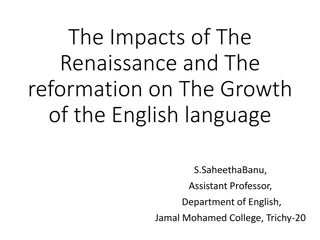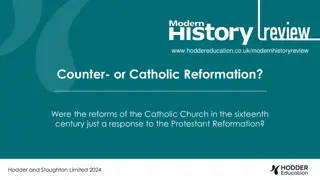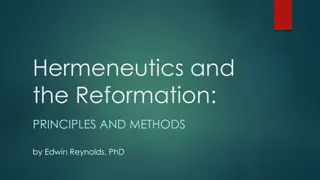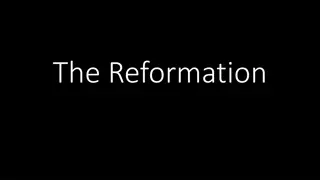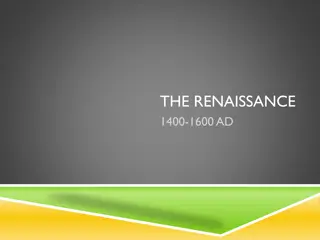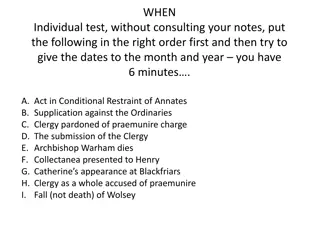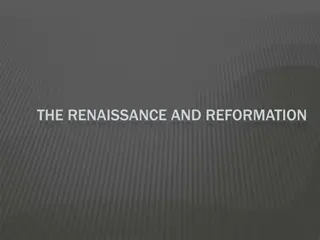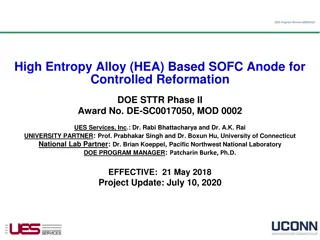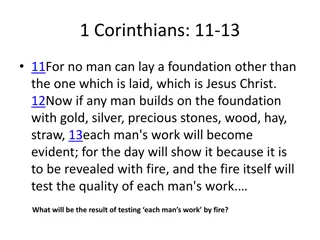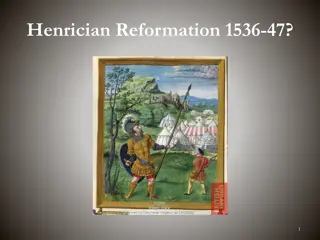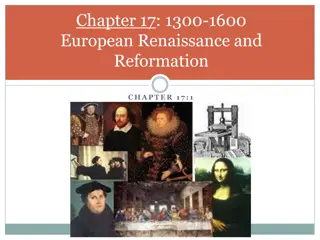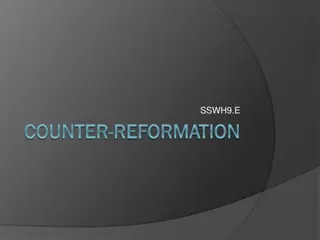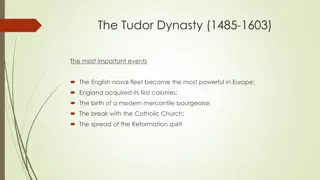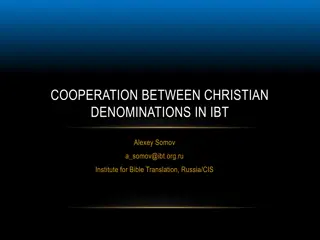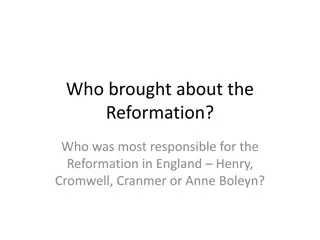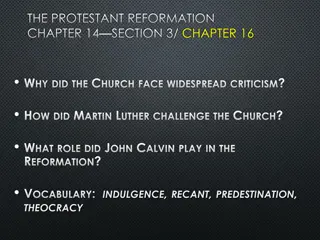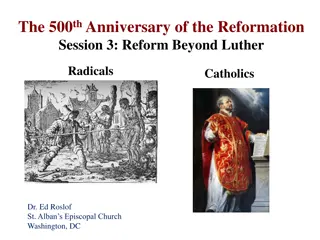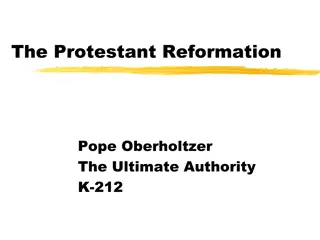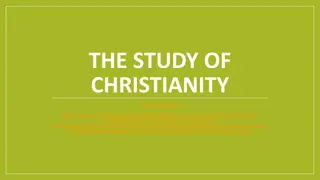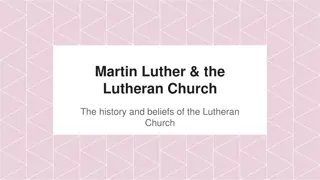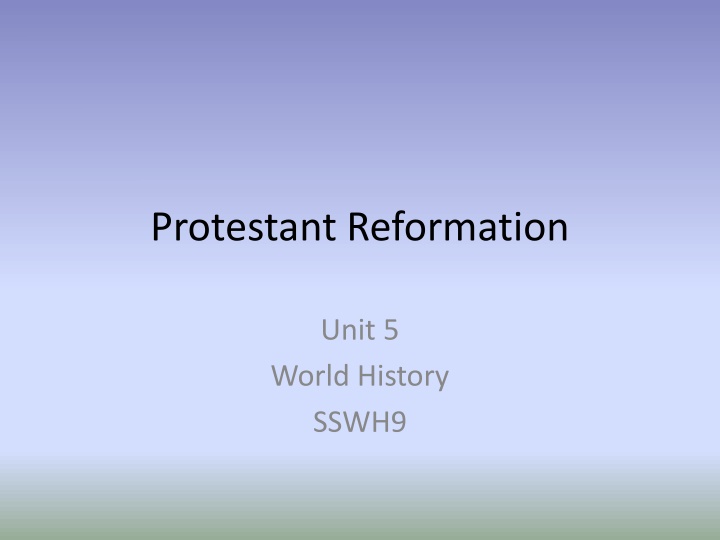
Unveiling the Protestant Reformation: Martin Luther and the 95 Theses
Discover the roots of the Protestant Reformation led by Martin Luther, as he challenged the Catholic Church's corrupt practices and beliefs. Learn about key issues, Luther's 95 Theses, and the revolutionary impact of his ideas spreading through the Gutenberg printing press.
Download Presentation

Please find below an Image/Link to download the presentation.
The content on the website is provided AS IS for your information and personal use only. It may not be sold, licensed, or shared on other websites without obtaining consent from the author. If you encounter any issues during the download, it is possible that the publisher has removed the file from their server.
You are allowed to download the files provided on this website for personal or commercial use, subject to the condition that they are used lawfully. All files are the property of their respective owners.
The content on the website is provided AS IS for your information and personal use only. It may not be sold, licensed, or shared on other websites without obtaining consent from the author.
E N D
Presentation Transcript
Protestant Reformation Unit 5 World History SSWH9
Problems in the Catholic Church By the 16thcentury, corruption in the Catholic Church led many to begin to question the Church
What were the issues? Immorality of church leaders and priests Popes focused on secular wars and issues Wealth of the Pope and church leaders Questions about Church doctrines (indulgences, salvation by good works)
Martin Luther Martin Luther was a monk and professor in Germany He was especially upset by the selling of indulgences for forgiveness of sin.
What is an indulgence? Indulgences = people could pay the Church to get themselves or loved ones out of purgatory
Martin Luther After studying the Bible, he began to believe that salvation was through faith alone, not by good works and faith like the Catholic Church doctrine suggested
Stop and Think! What were the criticisms of the Catholic Church leading up to the Protestant Reformation? Why do you think these things bothered people?
95 Theses In 1517, Luther posted his 95 Theses on the doors of the Castle Church in Wittenberg, Germany He stated his beliefs that based on scripture salvation came through faith alone He also criticized the selling of indulgences.
Impact of 95 Theses Martin Luther s ideas spread quickly and he gathered support from lots of people
Why did ideas spread so quickly (as opposed to the past)? Gutenberg s printing press!! Texts could now be copied in a 1-2 days, when it would have taken monks a year to transcribe by hand. Side note
Impact of 95 Theses The Catholic Church excommunicated Luther in 1521. He refused to change his ideas, and was made an outlaw according to the Edict of Worms.
Impact of 95 Theses His books were to be burned and he was supposed to be delivered to the Holy Roman Emperor, but he was protected by his local German ruler.
Impact of 95 Theses Martin Luther s movement continued to gain popularity Many German princes supported new state churches that held services focused on Bible readings, sermons and song rather than the Catholic Mass. These first Protestants came to be known as Lutherans.
Stop and Think! What were the 95 Theses? What was the Edict of Worms? How did Martin Luther impact the European world?
Another Protestant Reformer John Calvin John Calvin fled Catholic France after her converted to Protestantism. He went to Switzerland where Huldrych Zwingli led a Protestant Reformation that focused on scripture, prayer and sermons instead of the Catholic Mass.
John Calvin Calvin became the leader of the movement after his death and introduced the doctrine of predestination. In other words, Calvinists believed that God determined in advance who was saved and who wasn t.
Impact of Calvinism Calvinism spread quickly in many places in Europe.
Stop and Think! How was Calvinism different from Lutheranism?
Overall impact of Protestant Reformation New Protestant faiths and denominations Decrease in religious unity in Western Europe Decrease in power of the Catholic Church

